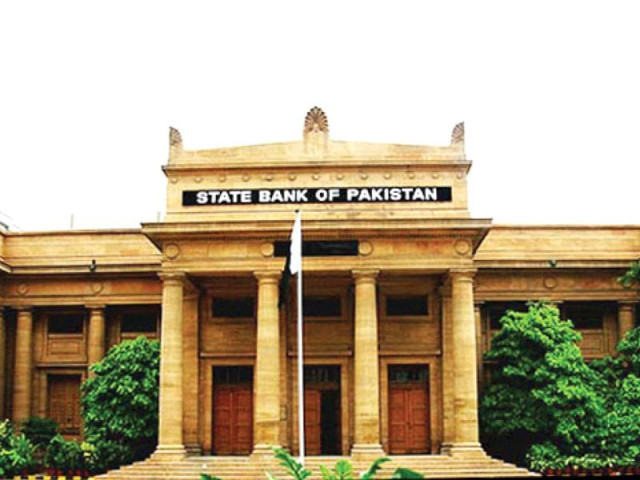Govt sells Pakistan Security Printing Corporation to SBP for Rs100b
Development comes as centre looks to cover shortfall in revenues due to US withholding CSF disbursements

PHOTO: EXPRESS
The control of PSPC was handed over to the State Bank of Pakistan (SBP) last month, officials of the Ministry of Finance and central bank confirmed to The Express Tribune. The finance ministry planned the sale of the asset during the course of fiscal year 2016-17, as this sale was not part of its original plan.
SBP grants banking licence to Bank of China
The PSPC will now operate as a subsidiary of the State Bank of Pakistan (SBP). Primarily, the transaction will be a book management which was aimed at getting an extra Rs100 billion from the central bank to meet non-tax revenue shortfalls.
For fiscal year 2016-17, the federal government had estimated receiving Rs280 billion from the central bank as SBP profit. However, the revised estimates showed that the SBP paid Rs228 billion profit to the federal government. Cumulatively, the central bank has given at least Rs328 billion to the federal government, which is one-third of its non-tax revenue receipts for fiscal year 2016-17 that ended on June 30.
The central bank has paid Rs100 billion out of its “retained earnings”.
For the last fiscal year, the finance ministry’s non-tax revenue target was Rs959 billion, which it scaled back at the time of announcing new fiscal year 2017-18 budget.
The massive shortfall in non-tax revenues due to less CSF disbursements by the United States necessitated the sale of the entity, according to Ministry of Finance officials. In its revised budget documents, the finance ministry has shown Rs100 billion as “sale of other government assets”.
At the time of making budget for fiscal year 2016-17, the finance ministry had estimated receiving Rs170 billion in defence receipts. However, the actual disbursements remained about Rs100 billion below the estimates.
Established in 1949, PSPC was wholly owned by the government of Pakistan and was under the administrative control of the Ministry of Finance. The company is principally engaged in printing of security documents including currency notes on behalf of the federal government.
Over 90% of its sales are made to government departments and agencies with banknotes being the largest constituent of the business mix, generating over three-fourths of sales revenue. In fiscal year 2015-16, the SBP paid Rs7.73 billion to the PSPC on account of banknotes printing charges, according to the central bank’s balance sheet.
The PSPC has 40% ownership stakes in Security Papers Limited (SPL) and 47% in SICPA Inks Pakistan (Private) Limited (SICPA). An official of the central bank said that the sale amount has been paid by SBP to the federal government.
The sale will also help to keep overall budget deficit around 5% of Gross Domestic Product. But it will be still higher than 3.8% of the GDP target approved by Parliament. The government’s tax revenues also remained short of the target by about Rs250 billion.
The finance ministry took the approval of the federal government before sale of the asset to the central bank, said an official of the finance ministry. However, the federal cabinet press releases issued after its meetings did not mention this transaction, indicating the federal government tried to hide this activity from the public.
The officials said that the Board of Directors of the SBP and the PSPC gave the approvals of the transaction and the body was valued by independent valuators.
For the last fiscal year 2016-17, the federal government had planned to list three power distribution companies at the Pakistan Stock Exchange to raise non-tax revenues. These entities were Faisalabad Electricity Supply Company, Islamabad Electricity Supply Company and Gujranwala Electric Power Company. The sales proceeds of these entities had been planned to be used for retiring the stock of the circular debt.
SBP develops ‘universal’ mobile phone app for financial transactions
But these transactions could not take place after the government rolled back the privatisation programme after end of the IMF programme. The government has completely ignored the Privatization Commission. After appointment of Mohammad Zubair as Governor Sindh, it has not announced a new PC chairman. The post of Secretary Privatisation is also vacant after transfer of Ahmad Nawaz Shukhera to Ministry of Information and Broadcasting.
Published in The Express Tribune, July 6th, 2017.
Like Business on Facebook, follow @TribuneBiz on Twitter to stay informed and join in the conversation.



















COMMENTS
Comments are moderated and generally will be posted if they are on-topic and not abusive.
For more information, please see our Comments FAQ